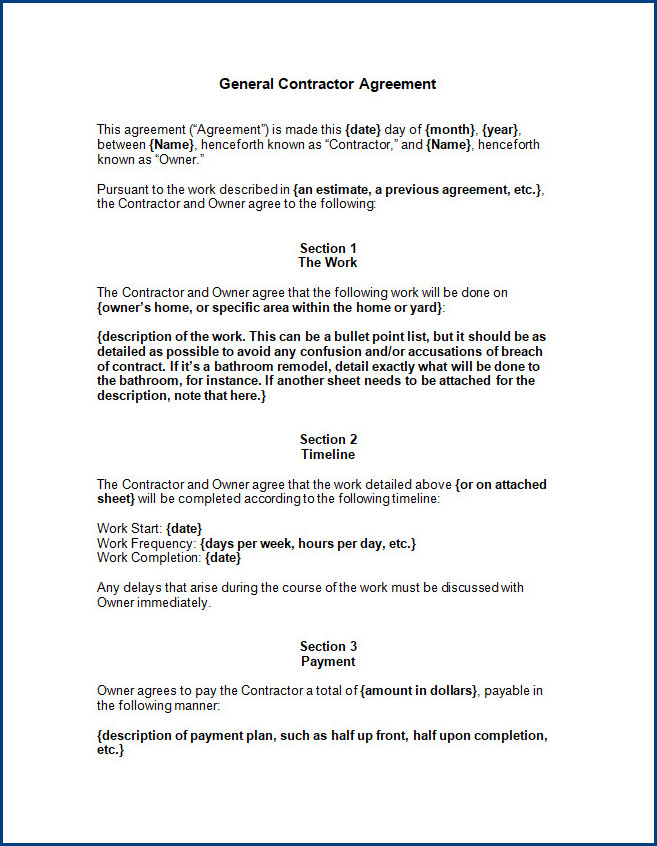What is a general contractor agreement?
A general contractor agreement is a legally binding contract between a contractor and a client that outlines the terms and conditions of a construction project. It serves as a written record of the agreement reached between both parties and provides clarity on the scope of work, payment terms, timelines, and any other relevant details. This agreement ensures that both the contractor and client are on the same page and have a clear understanding of their roles and responsibilities throughout the project.
The purpose of a general contractor agreement is to protect the rights and interests of both the contractor and the client. By clearly defining the expectations and obligations of each party, it helps minimize misunderstandings and disputes that may arise during the course of the project. The agreement also serves as a reference document in case any issues or conflicts need to be resolved legally.
One of the benefits of having a general contractor agreement is that it provides a solid foundation for a successful construction project. It helps establish trust and transparency between the contractor and the client, as both parties know exactly what is expected from them. Additionally, the agreement helps ensure that the project is completed within the agreed-upon timelines and budget, reducing the risk of delays and cost overruns.
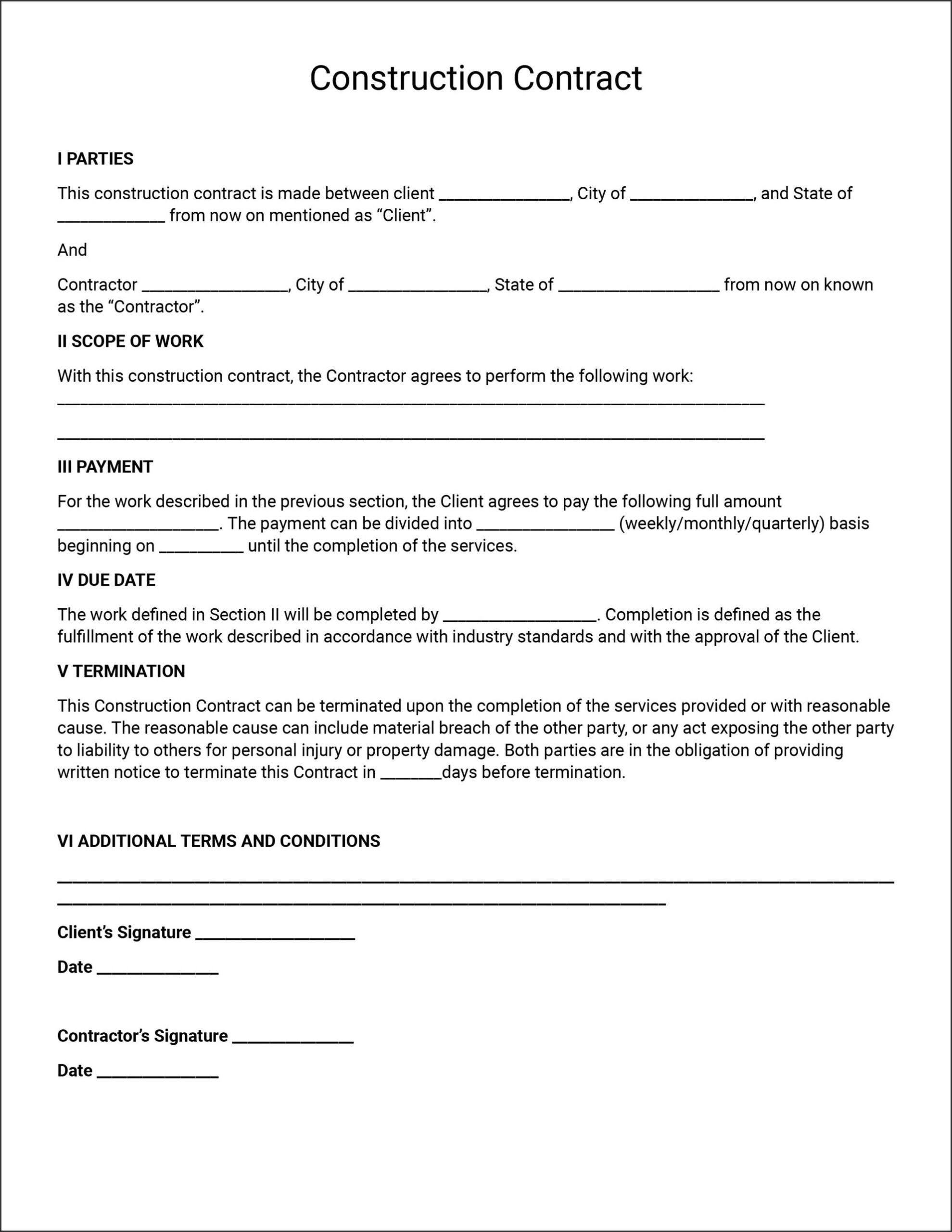
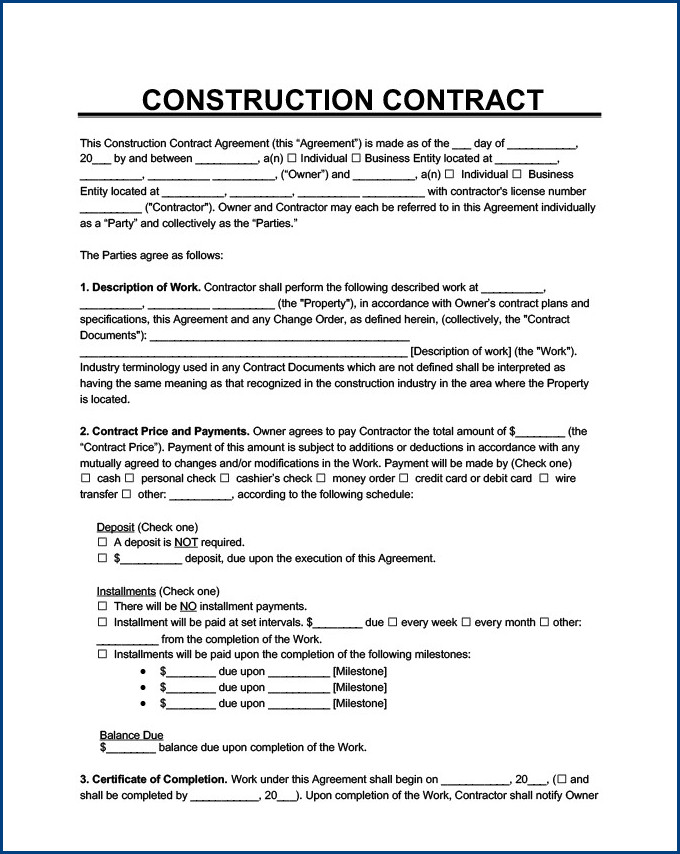
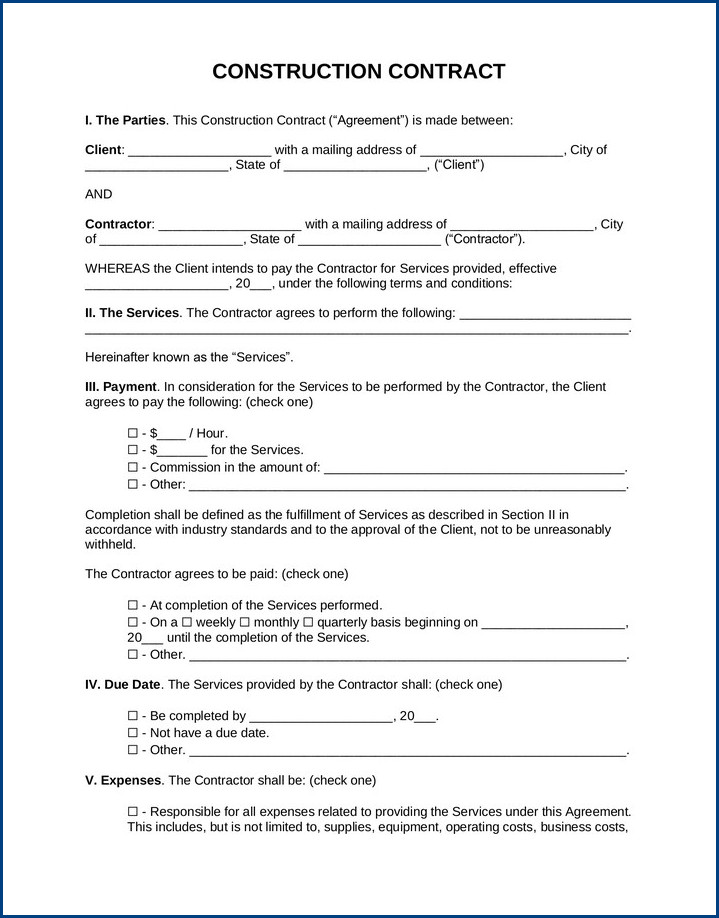
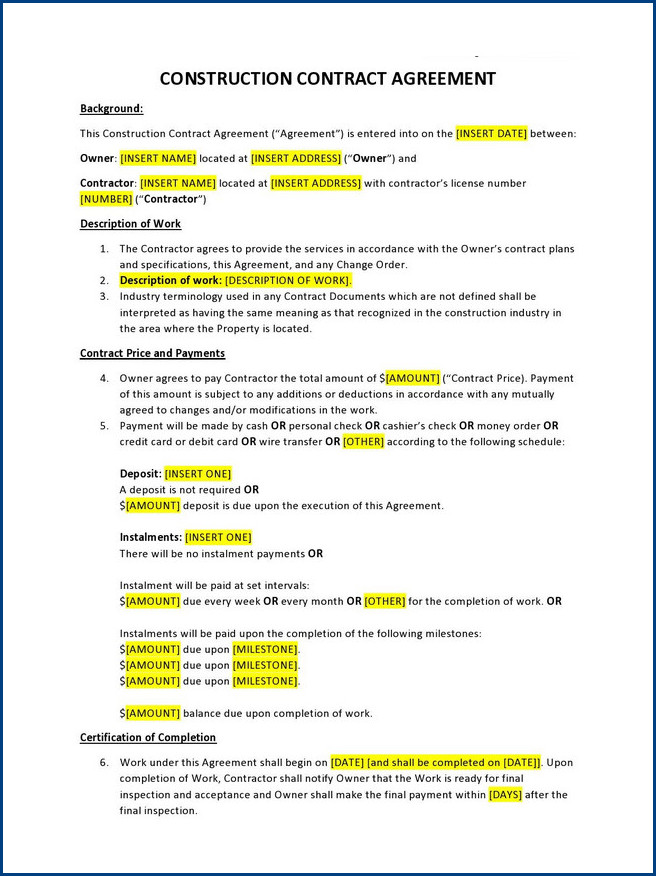
What should be included in a general contractor contract?
Here are some key elements that should be included in a general contractor contract:
- Scope of work: Clearly define the scope of work that the general contractor will be responsible for. This should include a detailed description of the tasks and services that will be provided.
- Timeline: Set specific dates for the start and completion of the project. Include milestones and deadlines for different phases of the construction process to ensure that the project stays on track.
- Payment terms: Specify the agreed-upon payment terms, including the total contract price and the schedule of payments. It is important to outline any penalties or late fees for delayed payments.
- Insurance and licenses: Require the general contractor to provide proof of insurance coverage and any necessary licenses or permits required for the project. This protects both parties in case of accidents or damages.
- Change orders: Outline the process for making changes to the original scope of work. This should include how change orders will be documented, approved, and priced.
- Dispute resolution: Include a clause that outlines the process for resolving disputes or disagreements that may arise during the project. This can help prevent costly legal battles and encourage open communication.
Having a well-drafted general contractor contract is crucial for the success of any construction project. It provides clarity and protection for both the general contractor and the client, ensuring that everyone is on the same page and that the project is completed to the desired specifications. By including these key elements in the contract, both parties can have peace of mind and confidence in their agreement.
General Contractor Agreement Template | Word – Download
General Contractor Agreement Template | PDF – Download
